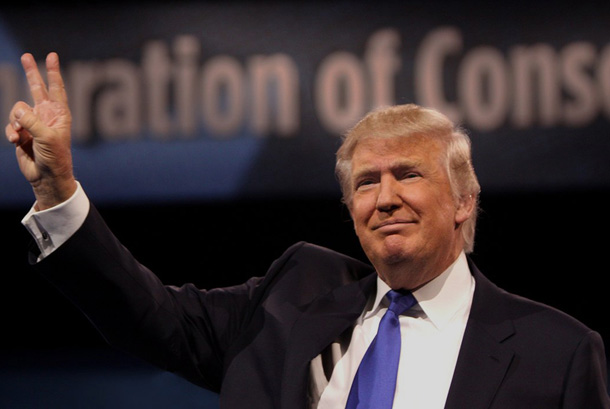 Washington, D.C. – US Congressman Sensenbrenner urges President-elect Trump to meet with the spiritual leader of Tibet, His Holiness the Dalai Lama; continue U.S. relationship with Tibet.
Washington, D.C. – US Congressman Sensenbrenner urges President-elect Trump to meet with the spiritual leader of Tibet, His Holiness the Dalai Lama; continue U.S. relationship with Tibet.
“As you meet with various world leaders in preparation for assuming your role as President, I would like to take the opportunity to suggest that you meet with His Holiness the Dalai Lama,” Sensenbrenner wrote in a letter to Trump dated Tuesday.
"In 2008, I had the honor of meeting the Dalai lama, Tibet’s spiritual leader and historic head of State. Since his exile from Tibet 57 years ago, the Dalai Lama has been a strong and persistent advocate for a peaceful resolution to the tension between Tibet and China," added Sensenbrenner, who backed Trump’s White House run.
"In 1989, the Dalai Lama was awarded the Nobel Peace Prize for his work in furthering the peaceful protest of the Chinese occupation of Tibet. In 2007, he was awarded the Congressional Gold Medal by President George W. Bush. These awards are just a small bit of recognition for the unwavering commitment to peaceful Tibetan independence that the Dalai Lama has demonstrated throughout his time as Tibet’s spiritual leader."
Sensenbrenner stated that a meeting with His Holiness the Dalai Lama would send China a strong message about U.S. support for Tibet.
"Tibetans have the right to preserve their culture, heritage, language, and religion. Over the years, the Tibetan people have undergone a constant struggle to free themselves from the Chinese government and to preserve these basic freedoms. However, the People’s Republic of China continues to refuse to acknowledge the autonomy of the Tibetan people, and have cracked down on protests and demonstrations by Tibetans.
“Throughout the course of the last half-century, America has had a strong and stable relationship with the people and government of Tibet. I hope you will continue this strong relationship with Tibet, as well as promote peace between Tibet and the People’s Republic of China.”
“Tibetans have the right to preserve their culture, heritage, language, and religion,” he said. "Over the years, the Tibetan people have undergone a constant struggle to free themselves from the Chinese government and to preserve these basic freedoms.
“However, the People’s Republic of China continues to refuse to acknowledge the autonomy of the Tibetan people, and have cracked down on protests and demonstrations by Tibetans.”
Tibet was invaded by Communist China in 1949. Since that time over 1.2 million out of 6 million Tibetans have been killed, over 6000 monasteries have been destroyed— acts of murder, rape and arbitrary imprisonment, torture and cruel, inhuman and degrading treatment were inflicted on the Tibetans inside Tibet, Beijing calls a "peaceful liberation".
In 1959, His Holiness the 14th Dalai Lama along with thousands of others escaped to India, where he was given political asylum. The spiritual leader has set up a government and rebuilt monasteries where masters pass on their teachings to young monks. Tibetans in exile have succeeded in gradually rebuilding their monasteries, preserving their culture and restructuring their society and keeping it alive, in spite of the extremely difficult circumstances.
For his part, the Tibetan spiritual leader travels around the world spreading a message of Peace and Universal Responsibility. He believes that the common aim of all religions, an aim that everyone must try to find, is to foster tolerance, altruism and love. He retired from politics in 2011. But, as one among six million Tibetans, His Holiness said he will continue to serve the cause of Tibet.
The Tibetan leader seeks genuine autonomy for the Tibetan people within the scope of the Constitution of the PRC through Middle Way Approach. But Beijing's Communist regime views the spiritual leader as an agitator and has repeatedly rejected calls for autonomy for his homeland of Tibet.


![Tibet has a rich history as a sovereign nation until the 1950s when it was invaded by China. [Photo: File]](/images/stories/Pics-2024/March/Tibet-Nation-1940s.jpg#joomlaImage://local-images/stories/Pics-2024/March/Tibet-Nation-1940s.jpg?width=1489&height=878)















